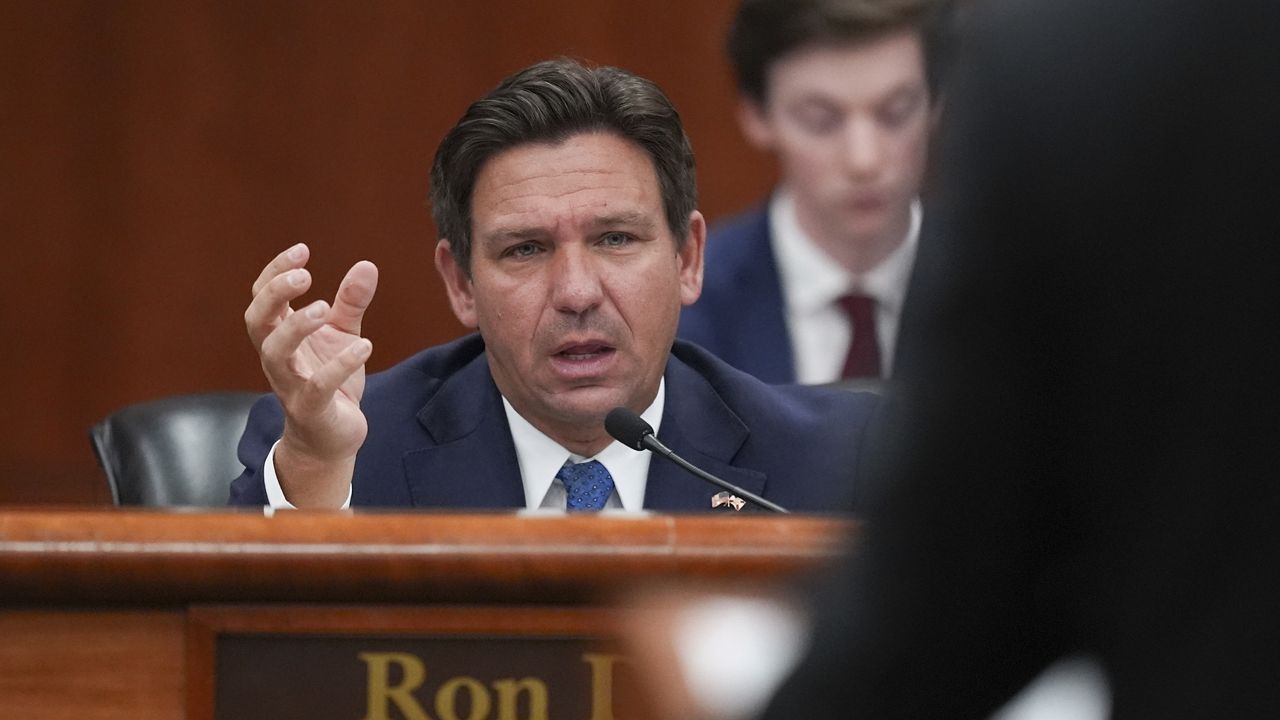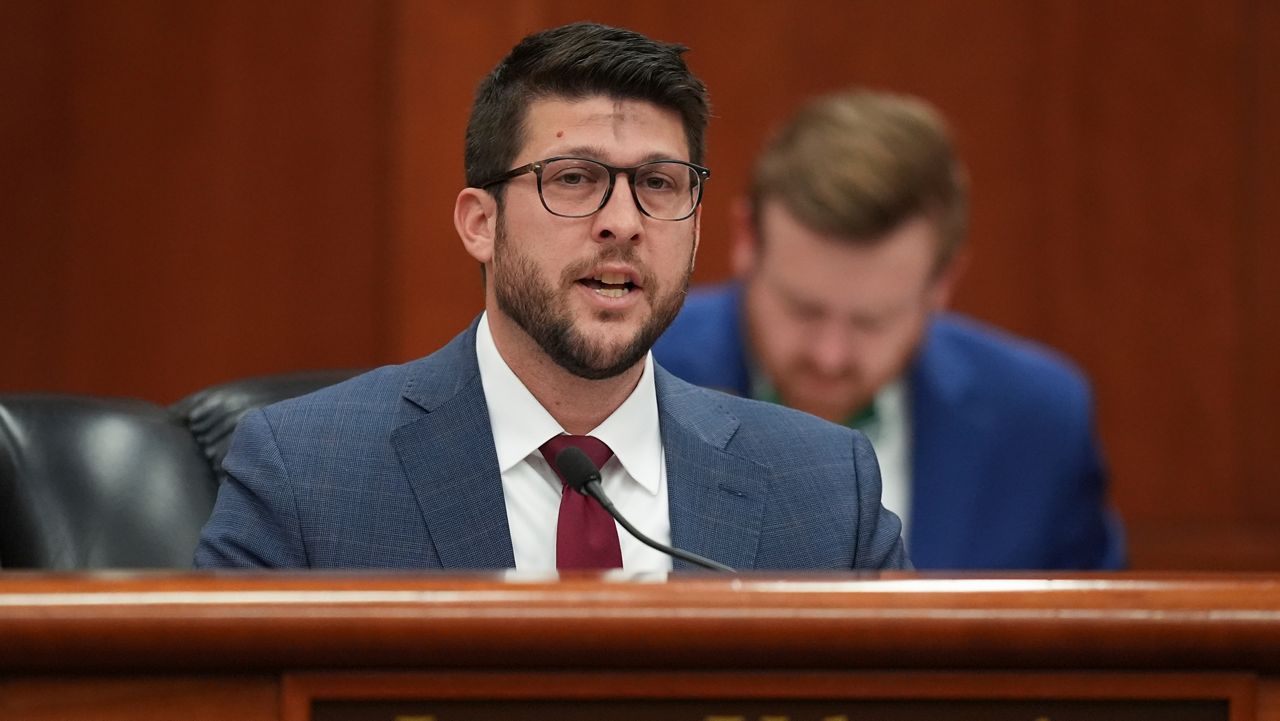President Donald Trump announced a new pause on most tariffs, but an increase in the tariffs for goods coming in from China, and Rep. Anna Paulina Luna meets with Florida lawmakers to discuss FEMA rules.
Trump announces 90-day pause on tariffs except for China
After days of economic turmoil and global frustration with his tariff policies, President Donald Trump announced on Wednesday a 90-day pause on the import taxes he placed on most countries in the world, with the exception of China.
China, which has escalated its own tariffs in retaliation in recent days, will face a 125% tariff on all goods exported to the U.S. “effective immediately," the president said. Trump made the announcement abruptly Wednesday afternoon on his social media platform, Truth Social.
“Based on the lack of respect that China has shown to the World’s Markets, I am hereby raising the Tariff charged to China by the United States of America to 125%, effective immediately,” Trump wrote, adding that for countries that have not retaliated to the tariffs he announced last week he has “authorized a 90 day PAUSE, and a substantially lowered Reciprocal Tariff during this period, of 10%, also effective immediately.”
U.S. trading markets jumped up after days of downward trends in the immediate aftermath of Trump’s post, even as details remained unclear.
Rep. Luna, more lawmakers, taking on FEMA's 50 percent rule
The Florida congressional delegation met in Washington D.C. on Wednesday to discuss the state’s hurricane recovery efforts.
It's a bipartisan effort from lawmakers.
Rep. Anna Paulina Luna from Pinellas County said she wants to tackle FEMA's 50-percent rule when it comes to rebuilding efforts.
"I think that this will help residents not just in Pinellas County but across the state,” said Luna a Republican. “Waiving the 50 percent rule that FEMAs put forward that I would actually argue is keeping residents especially those on fixed incomes out of their homes pushing them out of the county specifically to Pinellas, and I would say is an overreach of the federal government."
The 50 percent rule has been the topic of countless meetings in the aftermath of last storm season.
Bay area lawmakers have tried to clarify it for residents who are rebuilding.
The rule says homes with damage that amounts to more than 50 percent of the structure's value have to meet current flood code when they're renovated.
And that can be a very costly process.
Local restaurant owner worries about rising supply costs
Shoppers in Central Florida have seen rising prices at the grocery store, but recently, going out to eat is also costing more.
Some restaurant owners are worried the economy is going to burn them in tonight’s Your Community, Your Voice.
At Pig Floyd’s in Orlando, as the prices for the ingredients they use go up, Owner Thomas Ward says he can only absorb so much of those price hikes.
“We use a lot of pork and brisket and chicken, and all of those products are up year over year,” Ward said. “We’ve been adjusting pricing every quarter of the year just because everything has been changing so fast and so aggressively.”
He said even though customers know practically everything has gotten more expensive, it’s still hard for them to accept higher prices on the menu.
“Right now we have a half-chicken with two sides for $15 and people still think it’s expensive. But when you talk with people and you go, ‘Hey, what is your average lunch ticket price?’ They say $15, so we’re right in the thick of things but people still, they feel a little tight. They don’t want to spend that much money,” Ward said.
With President Donald Trump’s proposed tariffs, he’s worried prices on some of their most important products could go even higher.
“My biggest worry is that China owns the largest pork producer in the unites states, so I don’t know if there’s any form of retaliation in that sense. That’s what I’m really worried about. Obviously we get a lot of produce from Mexico, so that’s something that’s going to go up in price,” he said.
Higher food prices mean their employees are also demanding higher pay to cover their own costs of living.
So he must now factor in more money to pay his employees.
“Recently, even with dishwashers, we’ve lost several of them who have gone to work at universal, with the new epic properties, just because of the fact they’re offering better per hour,” he said.
Ward says this is likely the new normal.
“Unfortunately, I just don’t know that there is any movement that is going to lead to pricing coming down,” he said.
But he hopes changes at the federal level will ease up enough to allow for more stability, so his prices won’t have to go up anymore anytime soon.







_es_LA_Cell_Phone_Ban_in_Schools_CLEAN_133535650_1050)

_crop)